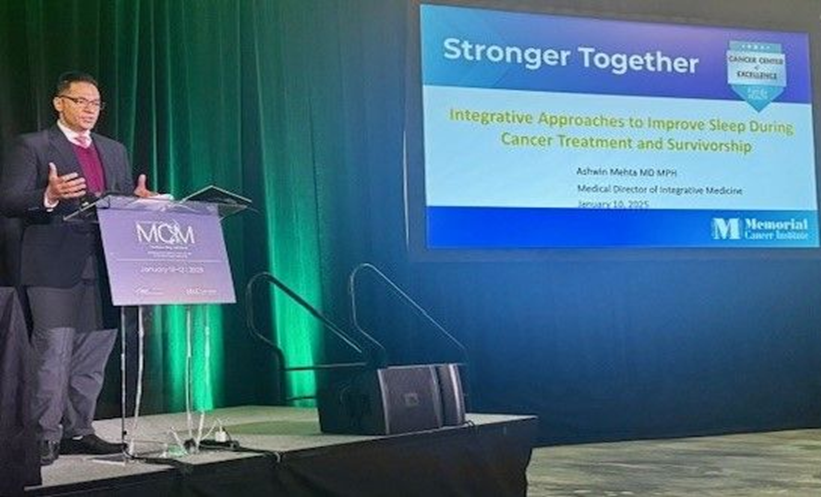Integrative sleep medicine is revolutionizing cancer care, as highlighted at the 21st Annual Miami Cancer Meeting (MCM) in Tampa, Florida, this January. Dr. Ashwin Mehta, Medical Director, Memorial Healthcare System, Miami, Florida, and AMJ Oncology Editorial Board member, delivered the presentation, “Integrative Approaches to Improve Sleep During Cancer Treatment and Survivorship,” which emphasized the critical role of sleep in cancer treatment and survivorship.
Integrative medicine, which combines mainstream treatments with complementary therapies, has long been gaining traction in oncology. Mehta explained that integrative oncology not only addresses physical symptoms but also empowers patients by engaging their mind, body, spirit, and community. This holistic approach is particularly beneficial for managing sleep disturbances, a common issue among patients with cancer.
Sleep is a multidimensional process essential for reversing damage from wakefulness, reducing oxidative stress, and regulating physiological functions. Mehta highlighted the importance of restful sleep in improving metabolic and immune functions, which are often compromised in patients. He noted that poor sleep quality can lead to metabolic changes, such as altered hunger signaling and weight gain, as well as reduced immune function. “It is during the deepest and most restorative stages of sleep that our bodies dissolve inflammation and our immune systems are working to heal. For this reason, better sleep is an essential aspect of improving quality of life for people living with cancer,” Dr. Mehta stated.
Insomnia among patients is prevalent, and benefits of cognitive-behavioral therapy and mindfulness techniques in improving sleep quality can be seen. Following this, Mehta stressed the need for early intervention to prevent chronic sleep issues and improve overall quality of life.
Integrative sleep medicine offers non-pharmacologic strategies, such as yoga, mindfulness, and lifestyle modifications, to enhance sleep quality. In his session, Mehta shared practical tips, including avoiding food 3 hours before bedtime, limiting fluids 2 hours before, and avoiding bright screens 1 hour before sleep.
The insights shared by Dr. Mehta at the Annual MCM underscore the importance of integrative approaches in improving sleep and overall well-being for patients with cancer. As research in this field grows, healthcare professionals are encouraged to incorporate these strategies into their practice to support patients’ recovery and survivorship.
Reference: Mehta, A. Integrative Approaches to Improve Sleep During Cancer Treatment and Survivorship. 2025, January 10. Presented at the 21st Annual MCM, Tampa, Florida, USA.
Anaya Malik | AMJ








